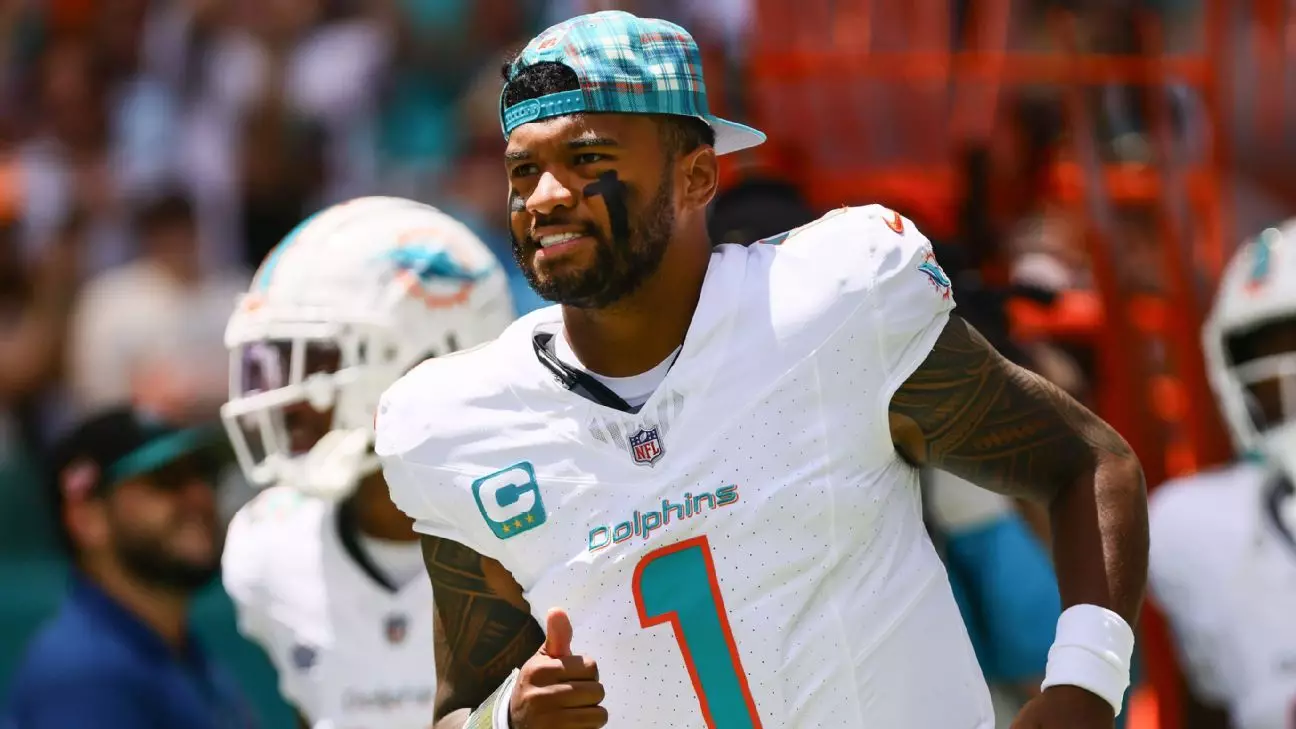Tua Tagovailoa’s Return: A Game-Changer for the Dolphins’ Season
As a lifelong fan of the Miami Dolphins, it’s hard not to feel a mix of emotions about Tua Tagovailoa’s return to the field. His absence following a troubling concussion left us all holding our breaths. When Coach Mike McDaniel announced that Tua had cleared protocol and was set to play against the Arizona Cardinals, it felt like a collective sigh of relief for fans everywhere. This wasn’t just about getting our quarterback back; it was about seeing someone we admire overcoming adversity.
It’s been a tough season watching from the sidelines, knowing how much potential Tua brings to the team. Injuries are unfortunately part of sports, but concussions bring an entirely different level of concern. The focus on Tua’s health over immediate game performance was heartening, reminding us all that some things are more important than winning. As we gear up to see him back in action, there’s a renewed hope in what his presence could mean for our beloved Dolphins this season.
The journey Tua has taken to return isn’t just a testament to medical protocols but also illustrates the intricate challenges professional athletes face today. It’s a story of resilience and careful management. For fans like us, it’s an opportunity to reflect on how far sports medicine has come and how it continues to prioritize player safety above all else. Having him back is exciting, but knowing he’s healthy is what truly matters.
Key Takeaways
- Tua Tagovailoa’s return highlights the importance of concussion protocols in sports.
- His comeback symbolizes hope and resilience for both him and the Miami Dolphins.
- The team’s performance during his absence underscores his critical role on the field.
A Support System in Place
Tua’s journey back wasn’t walked alone; he had a system supporting him every step of the way. Seeking multiple medical opinions helped solidify his decision to return rather than retire prematurely. This support network was vital, reinforcing that athletes today have a broader array of resources to guide their decisions beyond just personal ambition. The presence of family, medical experts, and team management created an environment focused on his well-being above all else.
The time away allowed Tua to recharge and refocus, supported by people who genuinely cared about his future. This collective effort ensured he returned only when fully ready, physically and mentally, serving as a model for athlete care. Knowing he had this backing not only reassured Tua but also comforted fans who were concerned about his long-term health. It’s this kind of care that redefines how we view player management in sports today.
Implications for the Dolphins
Tua’s return is more than just adding a player back into the lineup; it’s about restoring balance and confidence within the team. During his absence, the Dolphins’ offense struggled significantly, highlighting just how integral he is to their success. His leadership and connection with players like Tyreek Hill are expected to breathe new life into their strategy and play execution. Hill has often spoken about their unique connection on the field, which could be pivotal in turning around their current standings.
However, while optimism surrounds Tua’s comeback, the team faces other hurdles with injuries affecting their defense lineup as well. Players like Jevon Holland and Emmanuel Ogbah returning could bolster their ranks but missing key defensive starters remains a challenge. These dynamics will test the depth and adaptability of the Dolphins as they navigate through these obstacles this season.
Final Thoughts
Tua Tagovailoa’s return is more than just an individual milestone; it represents hope for fans yearning for better days ahead for the Dolphins. His comeback underscores not only his personal resilience but also reflects on how far sports have come in prioritizing player health over everything else. As he steps back onto the field, there’s an undeniable sense of optimism surrounding what he can bring to this team both on and off the field.
The road ahead won’t be without challenges, but having Tua back is undoubtedly a boost for morale and strategy alike. His determination combined with his natural talent offers a renewed sense of purpose for everyone involved—players, coaches, and fans alike. Only time will tell how his presence will impact this season’s outcome, but there’s no denying that having him back is already a victory in itself.
Tua Tagovailoa
Miami Dolphins
NFL
concussion protocol


Leave a Reply